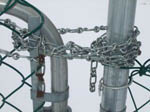That’s the Same Combination I Have on My Luggage!
 Quick, which service do you think has the most strict password requirements I’ve ever encountered? My bank? Mutual funds? My law firm network login? Credit cards? Paypal? Email providers? Configuring my home server for remote access? Electronics sites like newegg.com and amazon.com? Westlaw and Lexis?
Quick, which service do you think has the most strict password requirements I’ve ever encountered? My bank? Mutual funds? My law firm network login? Credit cards? Paypal? Email providers? Configuring my home server for remote access? Electronics sites like newegg.com and amazon.com? Westlaw and Lexis?
No. Not any of those. There is a service that, judging by its password requirements, contains either information far more sensitive or capabilities far more powerful than any of these. It’s…


